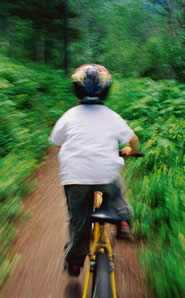
Brains sniff out scam artistsEvolution might have programmed us to compute fairness.13 August 2002 KENDALL POWELL
The human brain contains dedicated circuits to detect cheaters, say researchers1. The same team has found that people from different cultures are equally good at spotting unfair behaviour2. Humans evolved cheat detection as a separate mental component, says evolutionary psychologist John Tooby of the University of California, Santa Barbara. "Our brains have specialized programs like computer programs, specific for various applications," he says. Tooby and his colleagues tested the ability of a patient called R.M. to detect cheats. R.M. has damage to brain areas involved in emotion and social behaviour. His intelligence is normal, but he has trouble working out what other people know, think or feel. The researchers gave R.M. either a social rule ("If you borrow my motorcycle, you have to wash it") or a precautionary rule ("If you ride a motorcycle, you must wear a helmet"). The consequences of breaking the first type of rule are social, the second physical. R.M. was as good as control subjects at spotting when a precautionary rule was broken. But for social rules, he was 30 per cent worse at spotting cheats. "Cheater detection in the brain is a separate system from reasoning in other domains," comments Pascal Boyer, an anthropologist and psychologist at Washington University in St Louis, Missouri. "There's probably room in the brain for a list of modes of social interaction," says neuroscientist Steven Pinker of the Massachusetts Institute of Technology, Cambridge. This list might include guessing others' social status or sexual desires. Cultural consistency Specialized, evolved cheat detection should be present in humans regardless of their culture. To test this, the team took their experiment to the Shiwiar people of the Ecuadorian Amazon. These hunter-horticulturalists were isolated from the outside world until the late 1970s. But they can spot when someone breaks a deal as well as anybody, getting it right more than 80 per cent of the time. "A stockbroker in New York and a hunter in an Amazonian village will probably have to activate the capacity [to detect cheats] in different ways," comments Boyer. "But the capacity is there, ready to be activated." All social primates, such as Rhesus monkeys and chimpanzees, recognize social exchange and cheaters, so the adaptation may be evolutionarily quite old. |
||||||
|
References
| ||||||
|
|
